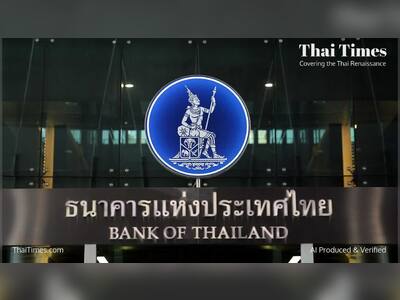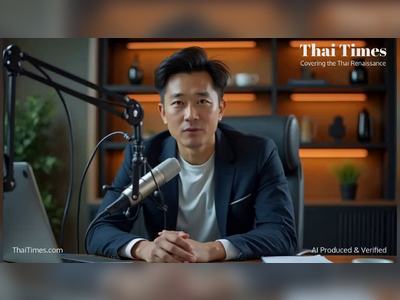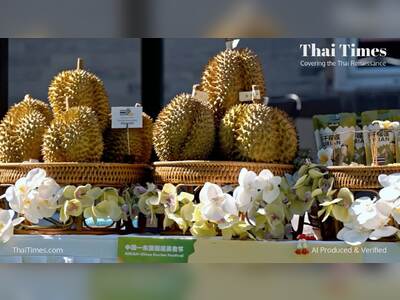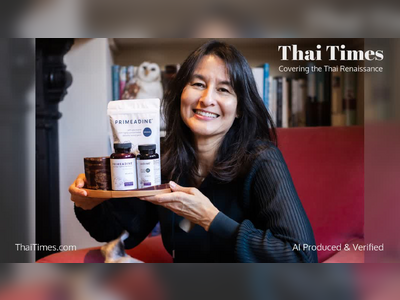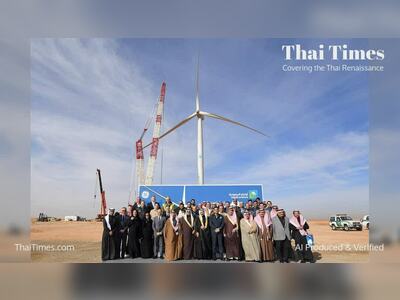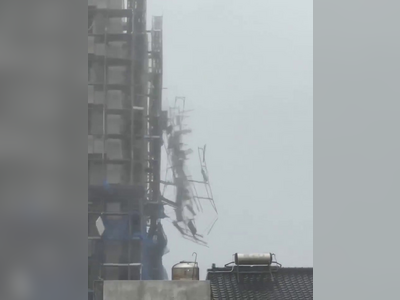Martial Law in South Korea: A Tipping Point for Democracy?
President Yoon's declaration sparks debate on democracy and security amid North Korean threats.
South Korea finds itself at a crossroads as President Yoon Suk-yeol's imposition of martial law sends shockwaves through both its political landscape and society at large.
This decisive and polarizing move, reminiscent of an era many believed was consigned to history, underscores the persistent tensions on the Korean peninsula and raises critical questions about the nature of democracy and the balance of power in the face of external threats.
On one side of the debate, advocates for the President's decision argue that the move is undeniably necessary given the real and persistent threats posed by North Korea.
In a region where geopolitical tensions simmer beneath the surface, the narrative of defense and national security carries weight.
Yoon and his proponents emphasize the need for decisive state action to safeguard the nation and its citizens.
Yet, this pre-dawn proclamation of martial law eerily echoes the actions of South Korea's authoritarian past, prompting concerns over the true intent behind such a measure.
Critics view this as an attempt to consolidate power under the guise of security.
The rhetoric employed by President Yoon, with its striking similarity to that used in less democratic times, strikes a chord of unease among those wary of history repeating itself.
The question thus looms: is this an overreach of power disguised as a response to genuine security concerns?
North Korea's antagonistic posturing is a legitimate concern that cannot be underestimated.
However, using national security as a blanket justification to curtail freedoms risks undermining the foundational principles of democracy—namely trust and transparency.
South Koreans remember well the public outcry when similar strong-arm tactics were used to quell dissent in the past.
Even conservative media outlets have criticized the current turn of events as a 'national embarrassment.' The heart of the matter lies in how power is wielded and whether South Korean institutions can withstand the pressure to revert to authoritarian measures during crises.
International observers have expressed concern over these developments, noting a slippage in South Korea's liberal democracy rankings.
As citizens' trust in the system wanes, the implications for the country's democratic fabric become all the more serious.
At this juncture, South Korea stands before a potentially transformative moment.
The nation's path forward will determine not only the nature of governance but the very core of its democratic identity.
Can South Korea reaffirm its commitment to democratic values despite mounting pressures?
This critical question invites active engagement and vigilance from every citizen.
As one protester poignantly noted, 'under warm sunlight, having to defend our democracy once again' becomes an imperative reminder.
Democracy is not a static goal; it is a dynamic struggle that demands resilience, iteration, and an unwavering pledge from all.
Keeping this dialogue ongoing and reflective of true democratic ideals is essential for ensuring vibrant, transparent, and just societies.
This decisive and polarizing move, reminiscent of an era many believed was consigned to history, underscores the persistent tensions on the Korean peninsula and raises critical questions about the nature of democracy and the balance of power in the face of external threats.
On one side of the debate, advocates for the President's decision argue that the move is undeniably necessary given the real and persistent threats posed by North Korea.
In a region where geopolitical tensions simmer beneath the surface, the narrative of defense and national security carries weight.
Yoon and his proponents emphasize the need for decisive state action to safeguard the nation and its citizens.
Yet, this pre-dawn proclamation of martial law eerily echoes the actions of South Korea's authoritarian past, prompting concerns over the true intent behind such a measure.
Critics view this as an attempt to consolidate power under the guise of security.
The rhetoric employed by President Yoon, with its striking similarity to that used in less democratic times, strikes a chord of unease among those wary of history repeating itself.
The question thus looms: is this an overreach of power disguised as a response to genuine security concerns?
North Korea's antagonistic posturing is a legitimate concern that cannot be underestimated.
However, using national security as a blanket justification to curtail freedoms risks undermining the foundational principles of democracy—namely trust and transparency.
South Koreans remember well the public outcry when similar strong-arm tactics were used to quell dissent in the past.
Even conservative media outlets have criticized the current turn of events as a 'national embarrassment.' The heart of the matter lies in how power is wielded and whether South Korean institutions can withstand the pressure to revert to authoritarian measures during crises.
International observers have expressed concern over these developments, noting a slippage in South Korea's liberal democracy rankings.
As citizens' trust in the system wanes, the implications for the country's democratic fabric become all the more serious.
At this juncture, South Korea stands before a potentially transformative moment.
The nation's path forward will determine not only the nature of governance but the very core of its democratic identity.
Can South Korea reaffirm its commitment to democratic values despite mounting pressures?
This critical question invites active engagement and vigilance from every citizen.
As one protester poignantly noted, 'under warm sunlight, having to defend our democracy once again' becomes an imperative reminder.
Democracy is not a static goal; it is a dynamic struggle that demands resilience, iteration, and an unwavering pledge from all.
Keeping this dialogue ongoing and reflective of true democratic ideals is essential for ensuring vibrant, transparent, and just societies.
